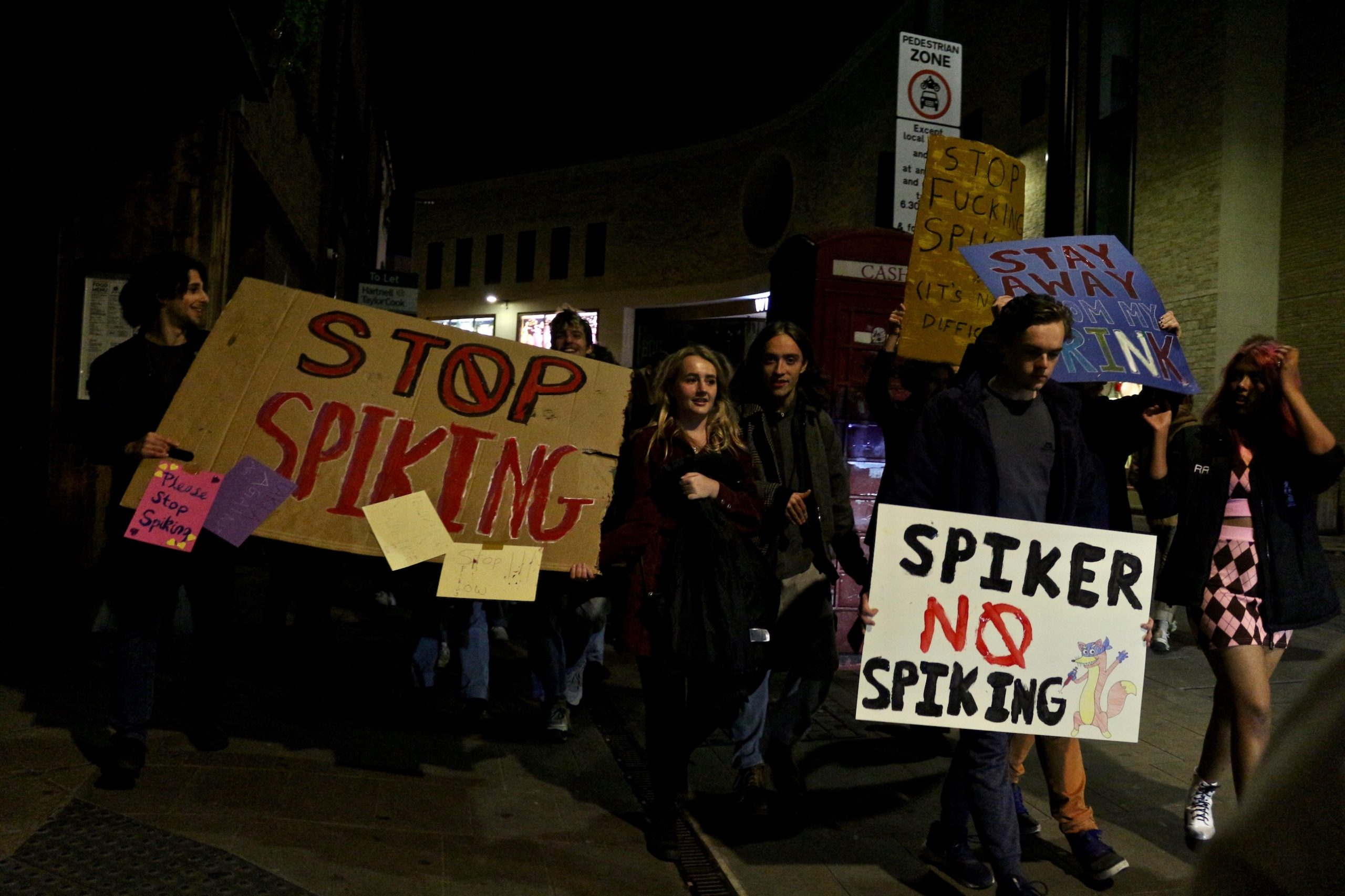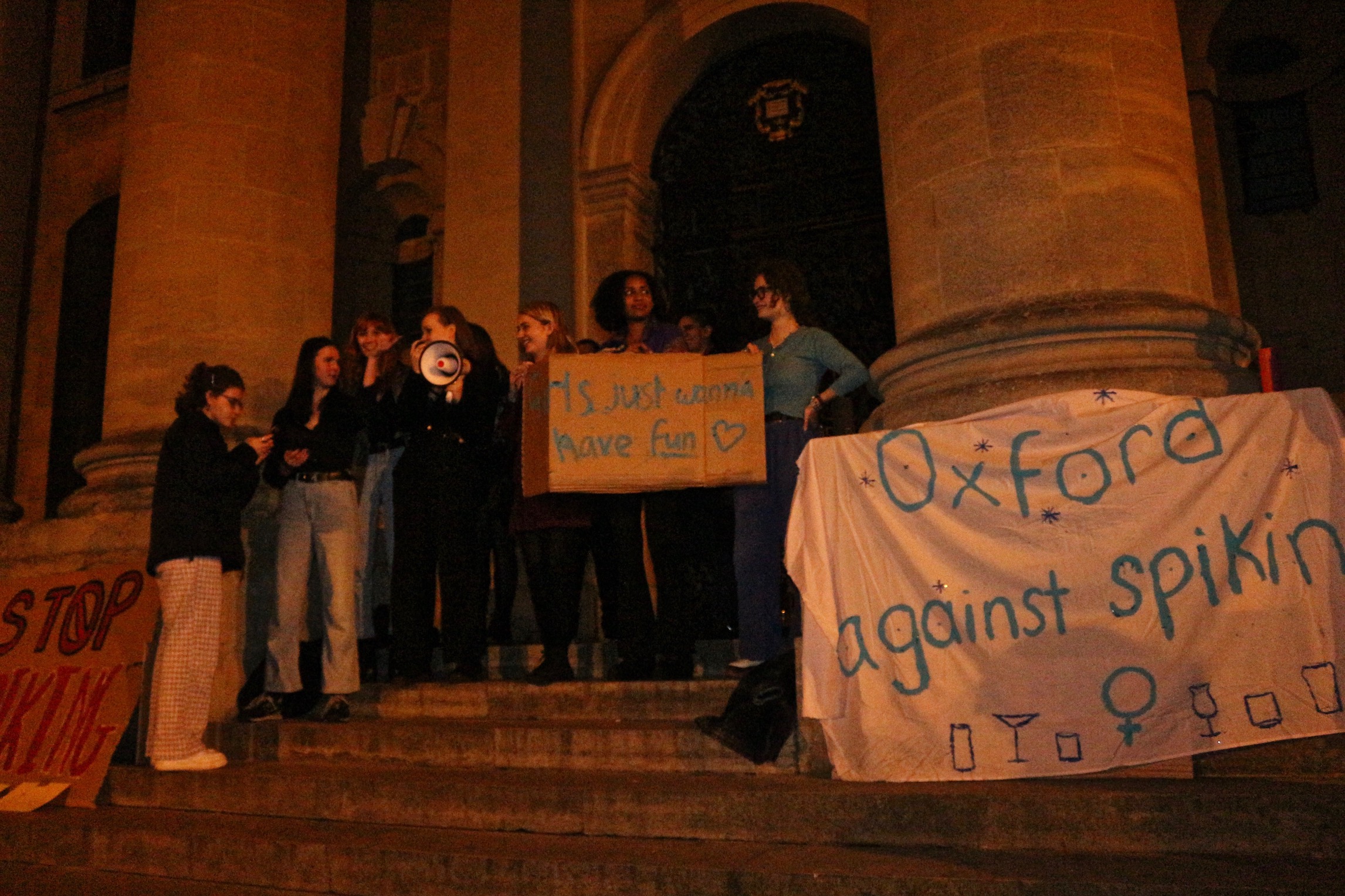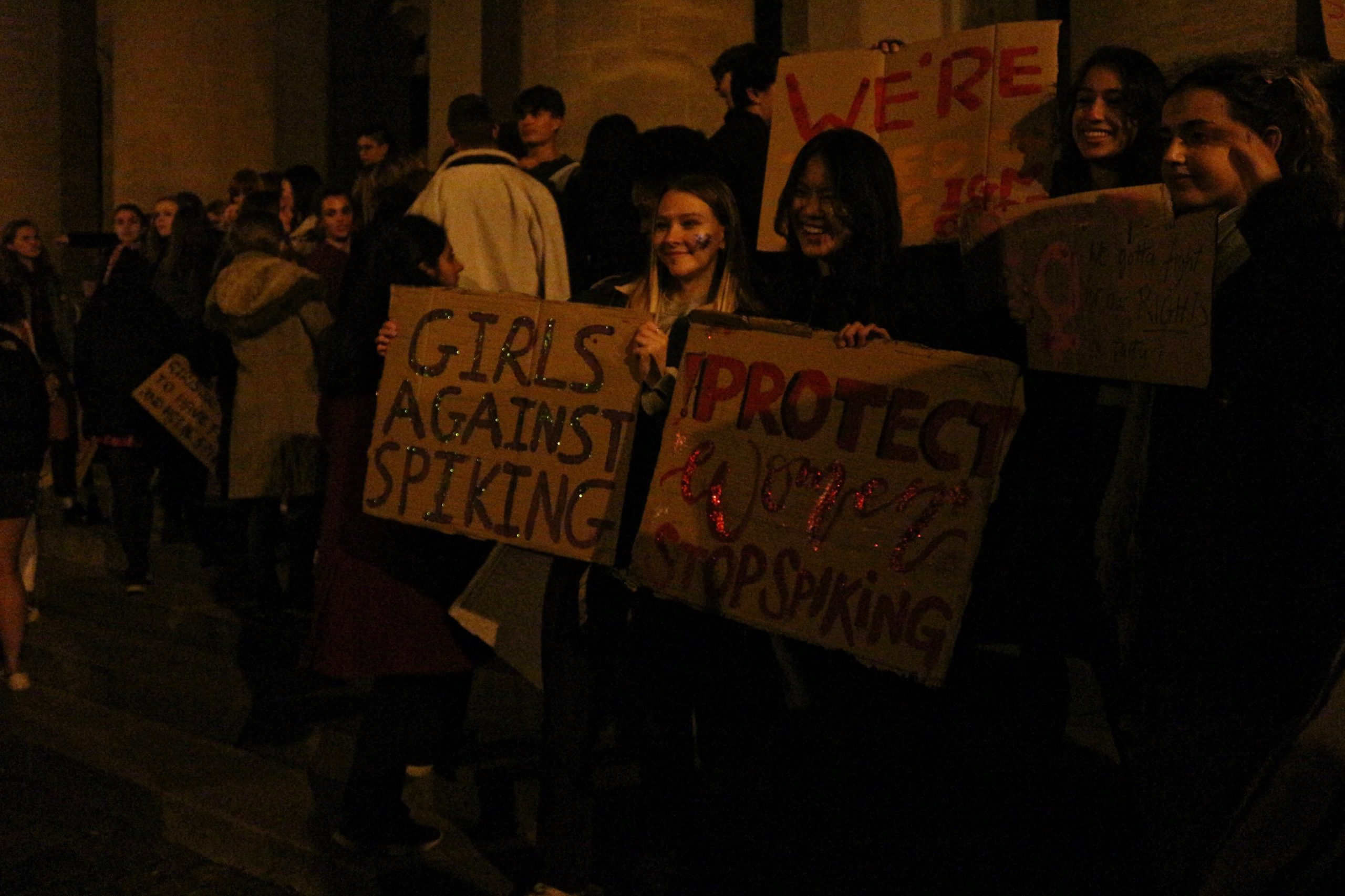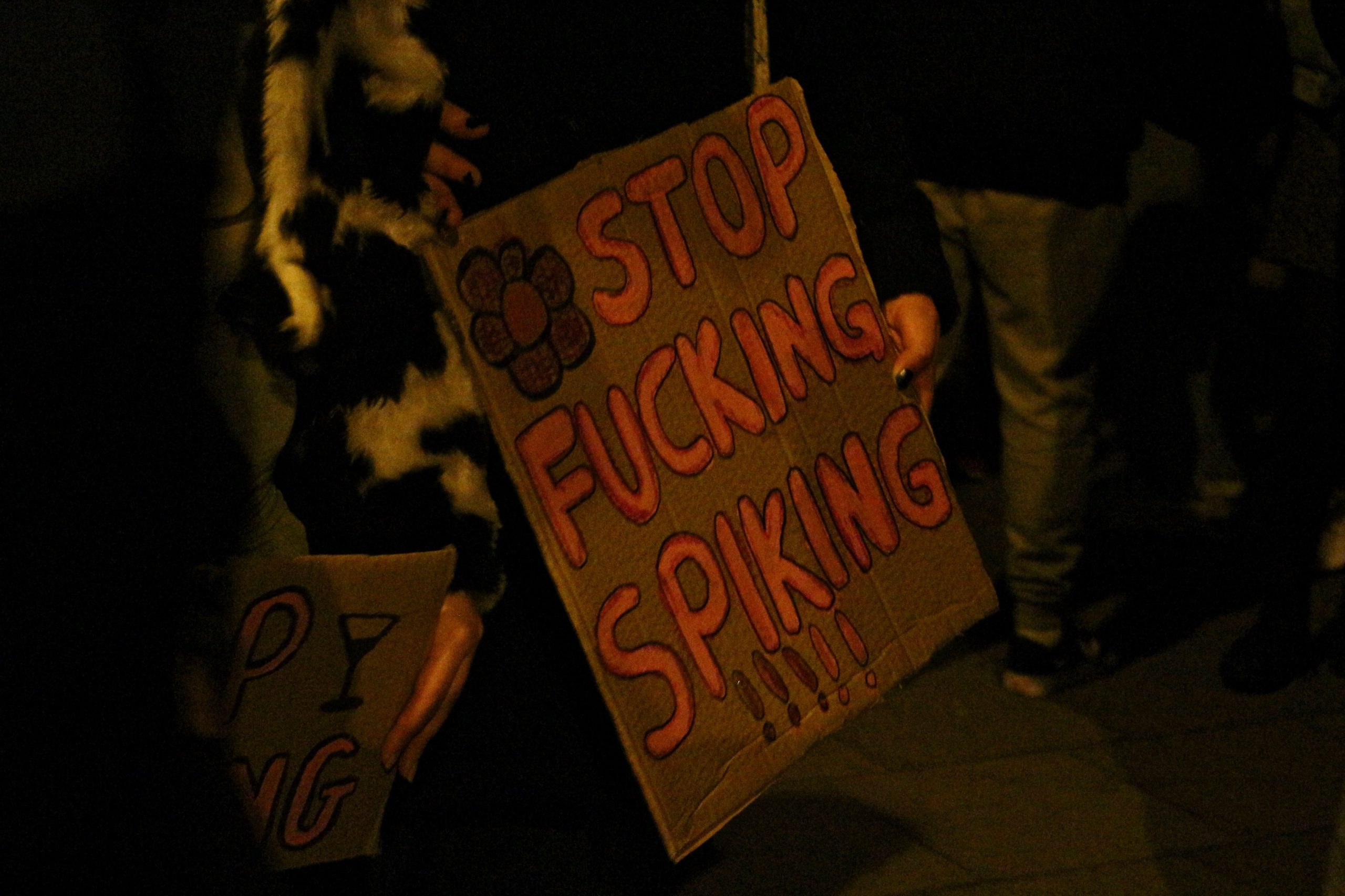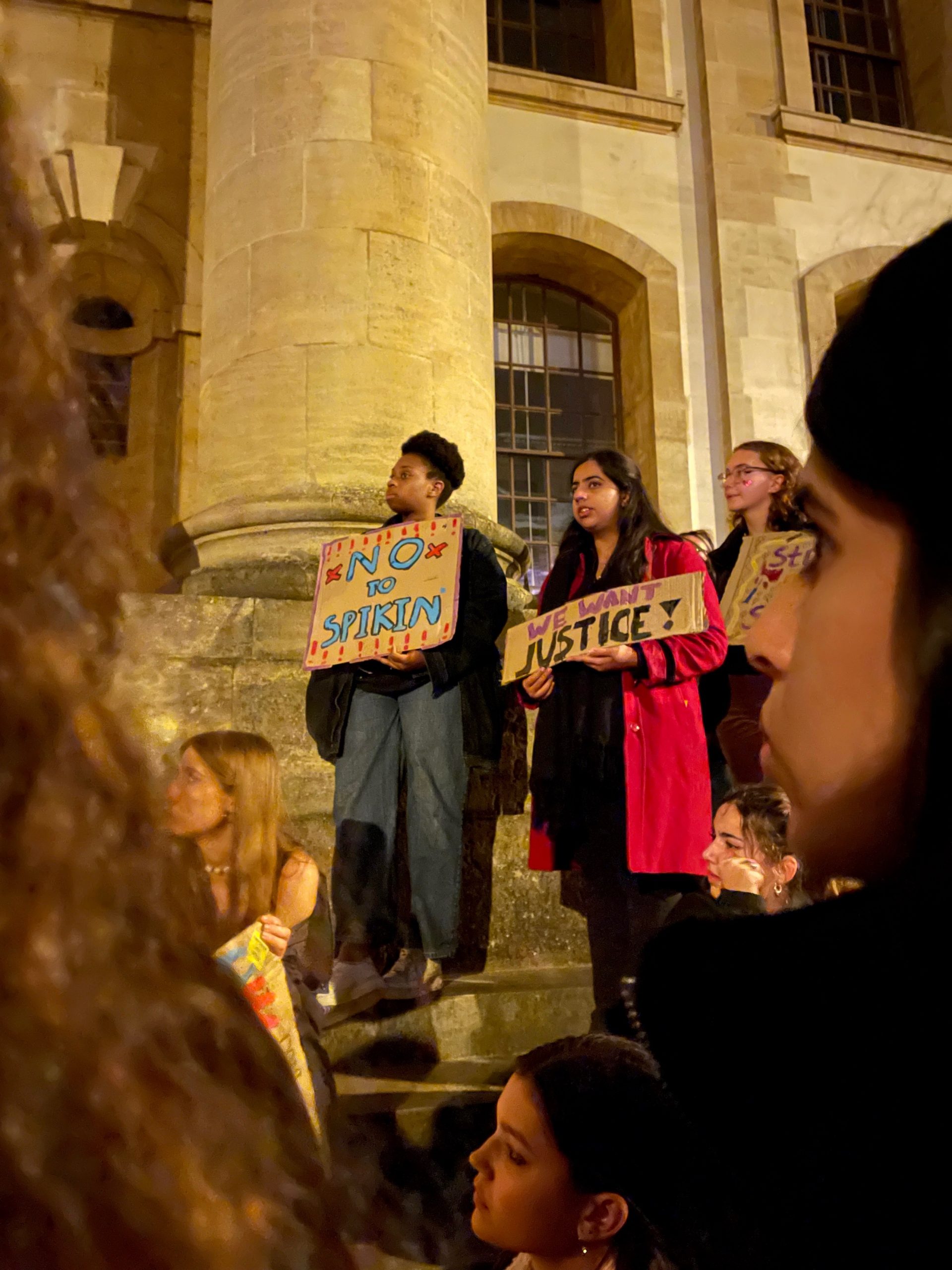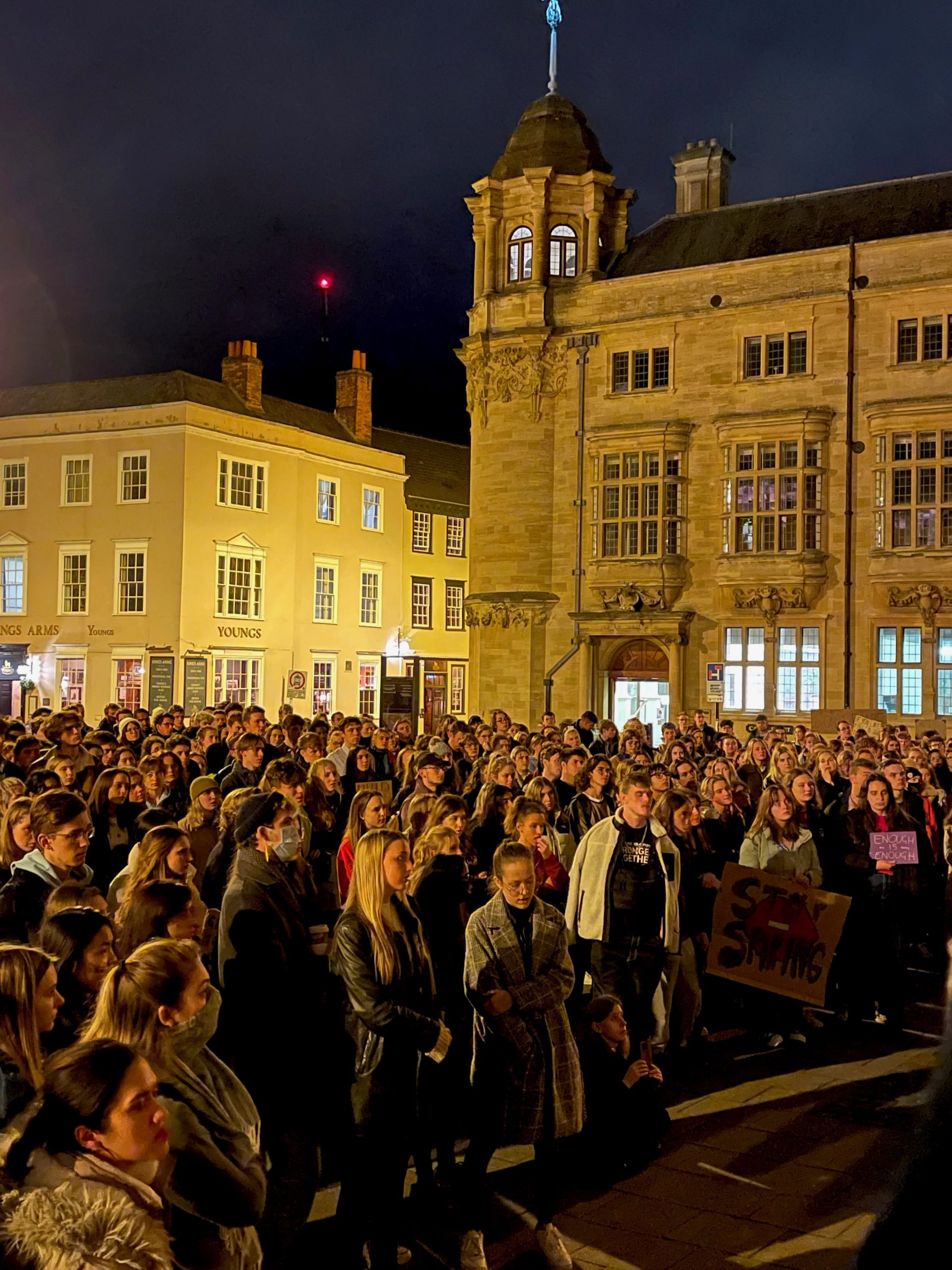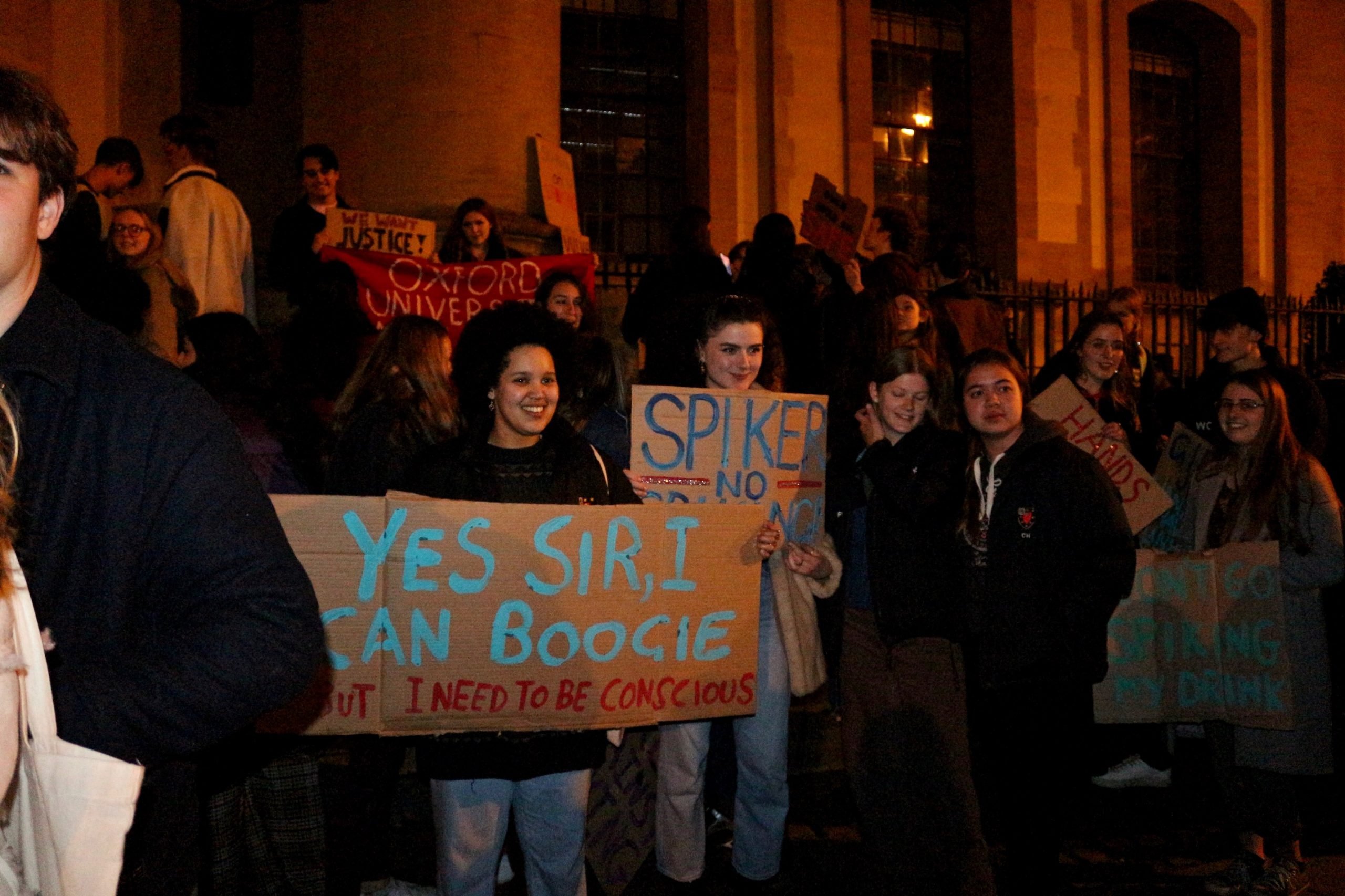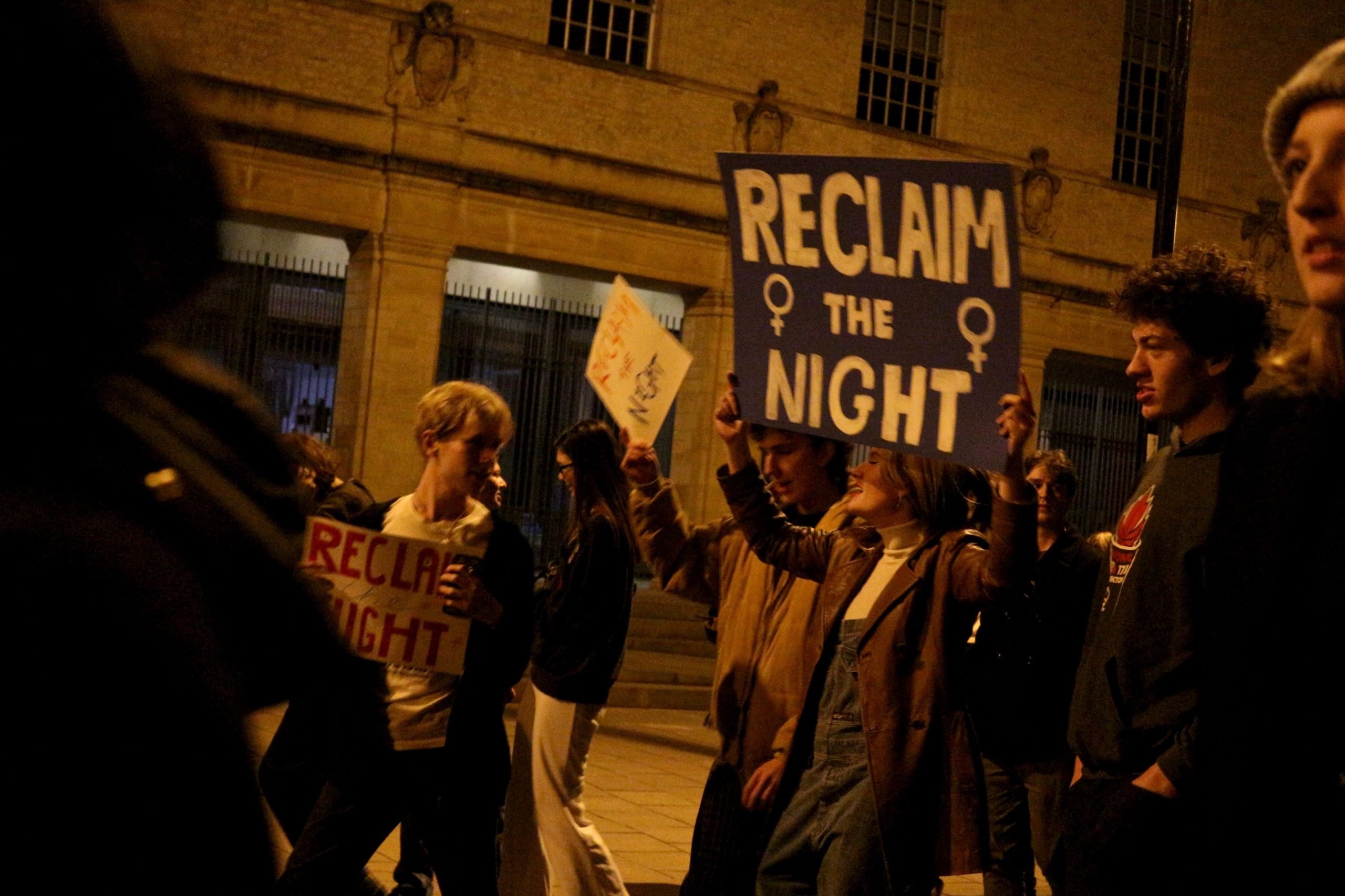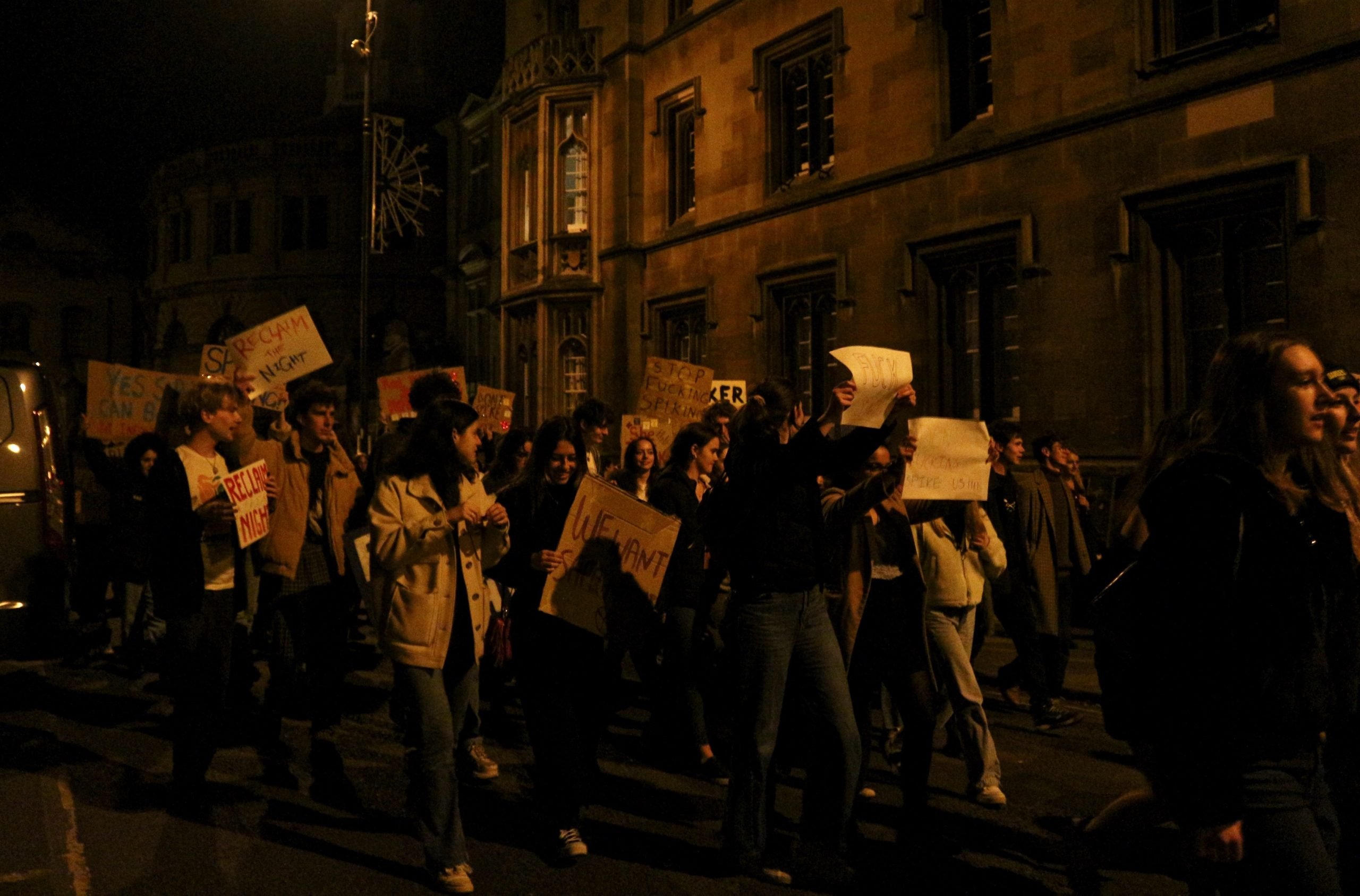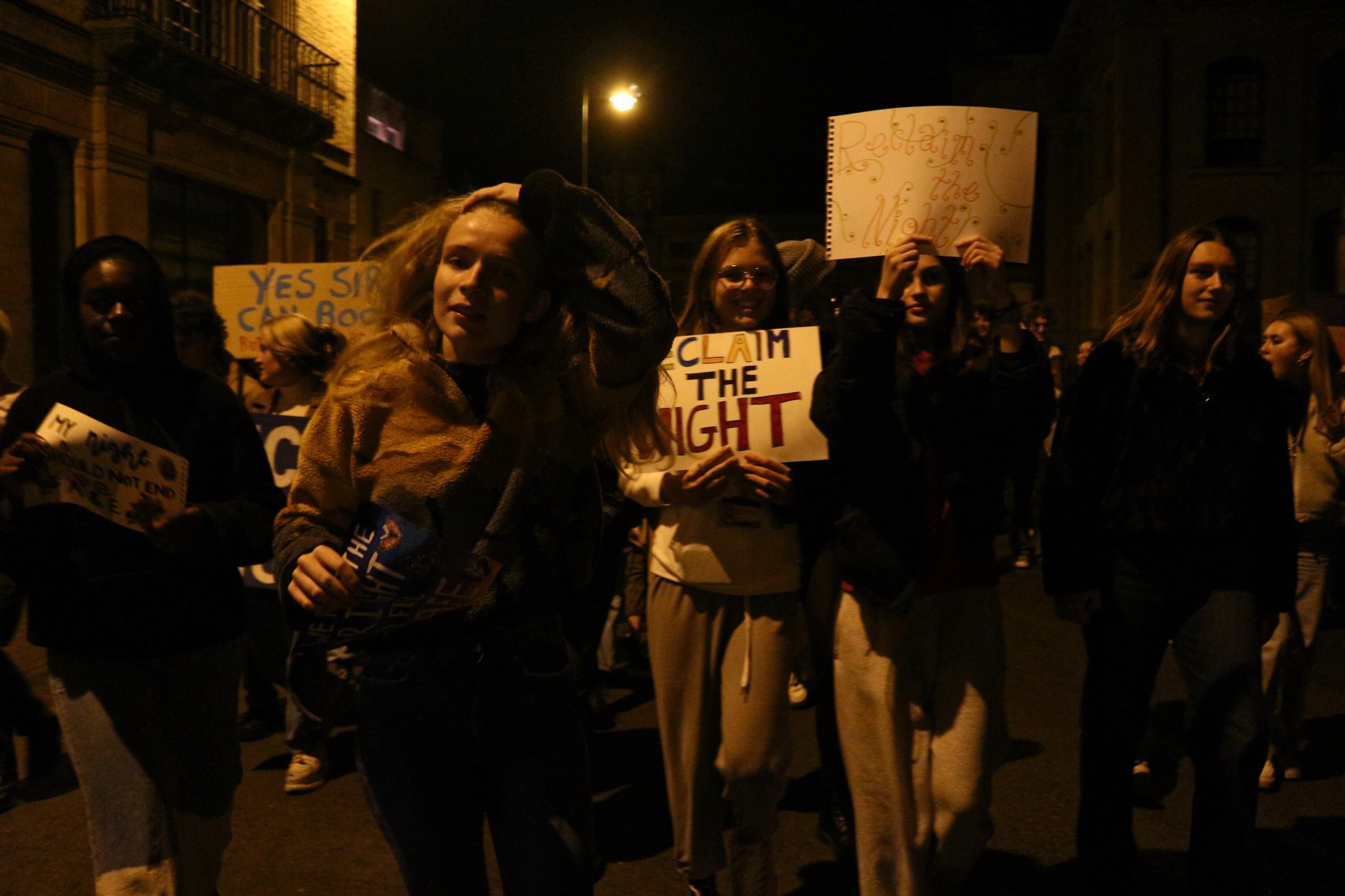CW: Sexual violence, drink spiking
Hundreds of Oxford students gathered by the Bodleaian steps on Broad Street last night to protest against drink spiking in nightclubs. The local campaign was led by the Oxford Night In and The Big Night In Oxford groups as part of a nationwide boycott of nightclubs.
The protest began with a series of speeches on the steps of the Bodeleian, followed by a march through the city. The march passed by the popular nightclubs ATIK and Bridge, although both were shut. Protestors returned to the Bodleian before disbanding for the night.
Cherwell spoke to Rose Morley, one of the event’s organisers and a student at Teddy Hall: “I started the Oxford initiation of the National Night In movement. I texted the SU (The WomCam) and asked if they were doing anything, and they said not yet. We’ve been collaborating on this since then. I have only been able to do it with everyone helping me.”
Though students of both Oxford universities were present at the protests by the Bodleian, students of Oxford University and Oxford Brookes have been organising their own branch of the protest. Oxford University students organised the page ‘Oxford Night In’, and Oxford Brookes students organised via their page ‘The Big Night In Oxford.’
When asked about the process of arranging the protest, which only began a few days before the protest was scheduled to happen, Rose responded, “A lot of it was just a lot of admin: getting the word out, raising awareness, making Instagram stories, emailing people. One of the largest things was making sure that we were in line with the national goals. We had three strands of things we wanted to do, but we made sure we weren’t advocating stuff like increased police presence. We didn’t want to give the government an excuse to increase police presence and hijack our movement, so to speak.”
Rose also told Cherwell that the organiser received numerous testimonies of drink spiking. She added that “going through each of those and taking the care and time to go through each of them was really important to us”.
The organisers arranged for Oxford Council Member, Shaista Aziz, to speak at the protest. Aziz is the Council Member for Inclusive Communities in Oxford, and delivered a speech about the multiple ways women and girls face violence in the UK. Aziz told Cherwell following the main speaker stage of the protest: “This is an incredible turnout. It just shows how important this issue is not only to women students who are primarily the targets of spiking. There’s people of all genders here- there’s men, there’s people from the non binary community- so it’s really important to see this solidarity and this unity.”
She continued: “ I hope that this energy is galvanised into the universities in our city also ensuring that they ensure their duty of care to the student population, but we need to see action and we need to see accountability. People here are speaking with one voice.”
Anvee Bhutani, the SU President who was at the demonstrations, told Cherwell: “It was so great to see over 500 people gather tonight against spiking, but heartbreaking that we have to do something like this in the first place. Women deserve better and we are demanding better. At the SU, our VP Women is working hard to promote women’s safety alongside the SU Women’s Campaign who helped organise the event and It Happens Here, the SU campaign against sexual assault. Action on this issue starts with us and the solidarity shown tonight was very powerful.”

Oxford SU President Anvee Bhutani (wearing a pink coat) on the Clarendon Building steps. 
Crowds gathered on Broad Street to listen to speakers.
Cherwell had the opportunity to speak to several protesters about their experience at the event. Lucy Cerys, a student at Teddy Hall, shared: “I’ve had an experience with being spiked. Women generally feel unsafe to walk out, to wear what they want, and to be who they are. I think it’s incredible that so many people came out to support this protest. I came out to stand in solidarity with women generally, not only for myself but for other people.”
Lucy discussed her perspective on the impact the protest had: “I think it showed that we are fed up, that we’re sick of it, that we’re not going to stand for it anymore, and that actually it is our human right to be safe and to not be spiked on our night out. Hopefully, the more we walk, the more we talk, it’s just about starting a conversation and holding people to account.”
Helena Aeberli, a Jesus College student who also demonstrated, told Cherwell: “Having already had a [Jesus] FemSoc discussion on women’s university experiences planned for the 27th, it was invigorating yet also damning, to know hundreds of other people across the country were having the same discussions as us.”
She continued: “The protest tonight was important, but it can’t be enough alone. Governments can claim solidarity without policy, and clubs like Park End can shut for a night and make up profit tomorrow without really changing their ways. It’s more important than ever that we continue to keep our voices heard and our actions radical rather than letting these issues slip back below the surface.”

Students marching down Merton Street. 
An open letter, signed by numerous College JCRs, the Oxford SU, and other related student groups, was also recently sent to Oxford nightclubs. The letter outlined the dangers of drink spiking and measures that Oxford nightclubs should take to prevent drink spiking. These measures include the presence of “further CCTV which covers all areas of the nightclub”, the provision of “drink covers and test strips”, and a designated welfare officer who would be “identifiable with a high visibility jacket”.
Image Credits: Meghana Geetha



